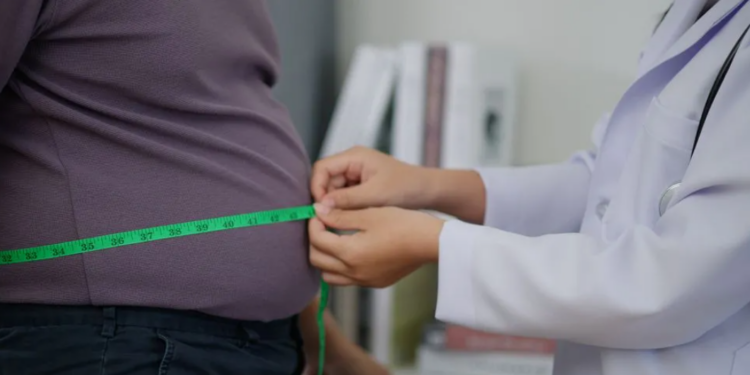You’ll all have no doubt heard and read possibly statistically-challenged journalists hyperventilating about the new ‘miracle drugs’ – Ozempic and Wegovy. At first they were targeted at the very lucrative weight loss market. But now a new study tells us they can also reduce the risk of heart attacks and strokes:
- ‘Weight loss jab could reduce heart attack risk by 20% said the BBC
- ‘Weight loss drug could reduce heart attack risk by 20%‘ said the BBC’s in-house journal – the Guardian
- ‘Obesity drug cuts risk of heart attack or stroke regardless of weight lost‘ said Sky News
- ‘Weight loss drug also protects against heart disease‘ wrote Scientific American
- and lots of other media contained the same story
But there are some curious aspects to this story. Firstly, this impressively-positive study was sponsored by Novo Nordisk – the manufacturer of the two drugs. Moreover, the latest version of the study was completed a couple of months ago. The fact that it is now being so widely reported suggests that what we’re getting may be a well-funded PR campaign rather than hard-working journalists coming to conclusions based on actually looking at the detailed study results. Some cynics have even suggested that the ‘miracle, breakthrough drugs’ campaign has been launched to try to distract us from stories about the negative and sometimes dangerous side-effects of these two drugs.
But perhaps the key issue is: what is actually being measured by the reported “20%” reduction in heart attacks and strokes in the drugs manufacturer’s study?
There are two main ways a pharma company can express results of its clinical trials – ‘relative risk’ and ‘absolute risk’. Let me use a simple example to explain.
Let’s imagine a five-year study done on a new statin in a medium-risk group of say 10,000 participants. Half the participants are given the new statin and the other half a placebo. Let’s further imagine that just 1.9% of those given the statin have heart attacks during the five years compared to 3.1% in the placebo group. The statin manufacturer could report that the risk of a heart attack in the group given the statin reduces by 120 heart attacks per 10,000 people. That’s an absolute risk reduction of around one person per 100 people or 1.2%. But given typical side-effects of statins – headache, dizziness, feeling sick, feeling unusually tired or physically weak, digestive system problems such as constipation, diarrhoea and indigestion, muscle pain, sleep problems, low blood platelet count – many doctors would not be too enthusiastic about prescribing this statin and many people wouldn’t be too excited about taking it for the rest of their lives if it just reduced the risk of a heart attack by one person per 100.
However, there’s another way for the pharma company to report its study results – this is the ‘relative risk’. In this case, the ‘relative risk’ of having a heart attack for those not taking this ‘wonderful new groundbreaking’ statin would be around 63% higher (3.1÷1.9) than those taking the statin. So using the ‘relative risk’, the pharma company could report that their statin more than halves the risk of a heart attack. Now that’s a more impressive claim to encourage doctors to prescribe and patients to take this statin.
However, when reporting side-effects from their products, pharma companies tend to use ‘absolute risk’. For example, study of around 467,000 people on various medical databases was conducted to assess whether there was an increased risk of people on statins developing acute pancreatitis. In the non-statin group (233,425) there were 1,355 cases of acute pancreatitis and in the statin group (233,647) there were 1,807 cases. If the pharma company was to use ‘relative risk’, it’d have to admit that there was a 33% increased risk of developing acute pancreatitis from taking statins. That’s not likely to encourage either doctors or patients. However, using ‘absolute risk’ the pharma company could say that the increased risk of acute pancreatitis from statin use was a mere one case per 1,000 people. That’s obviously a much more positive message than using the ‘relative risk’ of saying there was a 33% increased risk of acute pancreatitis.
I admit I haven’t looked through the detail of the new Novo Nordisk study suggesting that its products, Ozempic and Wegovy, are new wonder drugs which, in addition to being effective against obesity, can also significantly reduce the risk of heart attacks and strokes. I’m sure that there are many contributors to and readers of the Daily Sceptic who could do this much better than I can as I tend to get my numbers mixed up when calculating percentages. But I strongly suspect that Novo Nordisk has played the ‘relative and absolute risk’ game when reporting its study results. I imagine that Novo Nordisk has used ‘relative risk’ for reporting the benefits of its products and ‘absolute risk’ when admitting the likely side-effects. I look forward to someone investigating this to find out what is really going on.
David Craig is the author of There is No Climate Crisis, available as an e-book or paperback from Amazon.
Stop Press: The boffins at HART have crunched the numbers for Ozempic and Wegovy and found that while the relative risk reduction for cardiovascular outcomes was 20% (8% vs 6.5%) the absolute risk reduction was just 1.5%. Moreover, the dropout rate due to adverse events was 8.2% vs 16.6% – that’s over twice as many in the treatment group, or a 102% relative risk increase (it’s never reported this way of course). As an absolute risk that’s 8.4% up, compared to 1.5% helped. Or to put it another way, for every person who was helped by the drug, five or six had to stop using it because the side-effects were so severe. You won’t see that on a press release.














Profanity and abuse will be removed and may lead to a permanent ban.